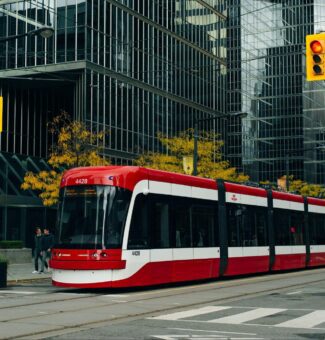Listen to this blog.
Zero-waste living — it’s a phrase that’s rapidly gaining traction as environmental concerns climb the social consciousness ladder, but what does it mean? Essentially, it’s living in a way that consciously reduces personal waste to have as little environmental impact as possible. It’s a lifestyle that’s beneficial to the planet, cost-effective, and can be incredibly fulfilling.
While it might sound daunting to overhaul one’s lifestyle completely, it’s important to note that transitioning to zero-waste living is a gradual process. Every small change we make in our daily routines significantly contributes to the broader goal: a cleaner and healthier environment for ourselves and generations to come. This blog post is your roadmap to beginning a zero-waste lifestyle, revealing the ease and satisfaction of making eco-friendly choices.
Understanding zero-waste living.
The core tenet of the zero-waste philosophy is reducing, reusing, and recycling waste in all its forms. However, opposing consumer culture and taking a hard look at our consumption habits won’t be easy. The first step towards success starts with a mindset shift — perceiving items not as waste but as resources.
Our modern society thrives on convenience, often resulting in a throwaway culture. Disposable items, excess packaging, and fast fashion contribute to mass amounts of waste filling our landfills, oceans, and natural spaces daily. The antidote to this throwaway trend lies in minimizing waste, an effort that begins with individuals like us.
The benefits of zero-waste living.

Adopting a zero-waste lifestyle is not just beneficial for the environment, but also positive for individuals and communities. By adopting zero-waste behaviours, we signal to manufacturers and decision-makers our preference for sustainable products and environmentally-conscious policies over fleeting ease and short-lived financial gains.
Environmental impact.
Naturally, the most prominent benefit of waste reduction is the subsequent decrease in environmental impact. Manufacturing processes involved in creating new products usually generate considerable amounts of carbon emissions, in turn contributing to the ongoing climate crisis. Similarly, waste that lands in landfills produces greenhouse gases as it decays. By minimizing our waste, we can aid in mitigating these detrimental environmental consequences.
Financial savings.
Embracing a zero-waste lifestyle offers significant cost efficiency by reducing the need to purchase disposable and single-use items. This approach not only slashes the expenses on disposables expenses that add up over time but also encourages investing in durable products. Despite their higher upfront cost, these items lead to long-term savings by minimizing the need for replacements. Also, habits like composting and growing your produce can further reduce grocery and waste disposal costs. Incorporating zero-waste practices leads to both immediate and long-lasting financial advantages, promoting a more sustainable and budget-friendly lifestyle.
Improved health and well-being.
A zero-waste lifestyle often inadvertently leads to a healthier lifestyle. Eco-conscious choices — like choosing organic, chemical-free products or fresh, unpackaged produce — can greatly contribute to your physical well-being. An increase in sustainability-related activities like gardening or DIY projects can also improve mental health by offering mindful, purposeful tasks.
The intersection of zero-waste and sustainable transportation.

Embracing a waste-free lifestyle requires rethinking our everyday products and the systems in which we play a part. A major area we can affect is our transportation network, a significant source of environmental pollution. Thanks to advancements in technology and an expanding infrastructure, it’s becoming easier and more appealing to shift to electric vehicles (EVs).
At Ivy Charging Network, we are making a major impact in this transition. Our strategically positioned chargers, available across various locations, provide a seamless charging experience, making it easier to own an EV and encouraging a smooth transition to electric transportation. It’s all about reinforcing people’s trust in EVs while providing them with a trouble-free switch to sustainable commuting.
Electric vehicles offer several environmental benefits compared to traditional combustion engine vehicles, including:
- Reduced emissions: EVs produce zero tailpipe emissions, contributing majorly to cleaner air. According to a report from Plug’n Drive, a Canadian EV-focused nonprofit, EVs can reduce greenhouse gas emissions by up to 90% in Canada.
- Waste minimization: With access to critical raw materials, Canada is poised to become a key player in the circular EV supply chain, attracting companies dedicated to minimizing waste through local battery production and recycling.
- Energy efficiency: EVs are generally more efficient with energy, translating to less energy waste.
Practical tips for reducing daily waste.

Transitioning to a zero-waste lifestyle doesn’t happen overnight. It’s a journey that begins with small steps, gradually incorporating sustainable habits into your daily routine. Here are some manageable strategies to get you started on your zero-waste path:
1. Conscious consumption.
One of the critical aspects of zero-waste living is intentional consumption. Begin by assessing your shopping habits and identifying areas where you can minimize waste, whether it’s using reusable bags, purchasing unpackaged produce, or selecting products free from disposable plastic.
2. Invest in reusable products.
A huge part of reducing waste involves opting for reusable products over single-use ones. This includes reusable water bottles, grocery bags, cutlery, and takeaway containers—simple swaps that significantly reduce your plastic waste.
3. Reduce food waste.
Food waste is a significant contributor to household waste. Ambitious goals like starting a vegetable garden will significantly decrease food packaging waste, while smaller changes like meal planning, using leftover food, or composting rinds and peels all add up.
4. DIY household products.
Many of the items we use daily can be made at home using safer, more environmentally friendly ingredients. Consider DIY-ing your cleaning products, personal care items, or even food items like baked goods or jams to reduce packaging waste.
5. Recycle and compost.
When waste is unavoidable, it’s crucial to manage it responsibly. Regular recycling serves as a good starting point, but it doesn’t encompass all items. It’s worthwhile to learn about correct recycling practices and investigate other disposal options. For instance, you can leverage e-waste recycling programs like those provided by the Ontario Electronic Stewardship ― they offer drop-off locations for unwanted electronics.
Pushing forward towards zero-waste living.
Adopting a zero-waste lifestyle is not just about conserving resources; it’s also about fostering a mindset that values mindfulness, simplicity, and respect for the environment. It’s not necessary or feasible to upend your life overnight. Start small, build consistent habits, and gradually increase your commitment as your comfort and familiarity grow.
Resources for zero-waste living.

For more guidance and tips on the path to zero-waste living, check out:
- Zero-Waste Chef:
This blog combines a passion for cooking with zero-waste principles, showing readers how to reduce food waste, make their kitchen essentials, and resist the convenience of processed food. - Zero-Waste Canada:
This nonprofit organization provides educational resources and support for those seeking to incorporate zero-waste practices into their lifestyles. - Zero-Waste Living:
An inspirational resource that aims to assist individuals in reducing waste and cutting down plastic usage. - 9 Ways to Sustainable Zero-Waste Living:
An informative article by The Globe and Mail offering practical tips on how anyone in Canada can sustain a zero-waste lifestyle. - The Plastic Free YYC:
A Calgary-based nonprofit community that provides resources to help you reduce waste and single-use items.
Driving towards a sustainable future.
Every choice we make contributes to the narrative of sustainability and the conservation of our planet. By considering the complete life cycle of our purchases, from the manufacturing processes to their end-of-life disposal or recycling potential, we take responsibility for our environmental impact.
Transitioning to a zero-waste lifestyle is a commitment to a healthier lifestyle, a cleaner environment, and a brighter future. It’s a compelling example of how small, individual actions can collectively create massive change. So, are you ready to pave your way to a waste-free life?
Don’t forget to follow us on social media to keep up with all the news of the EV world!

Join our electric community.
Be the first to hear about Ivy tips, promotions, and network updates.


